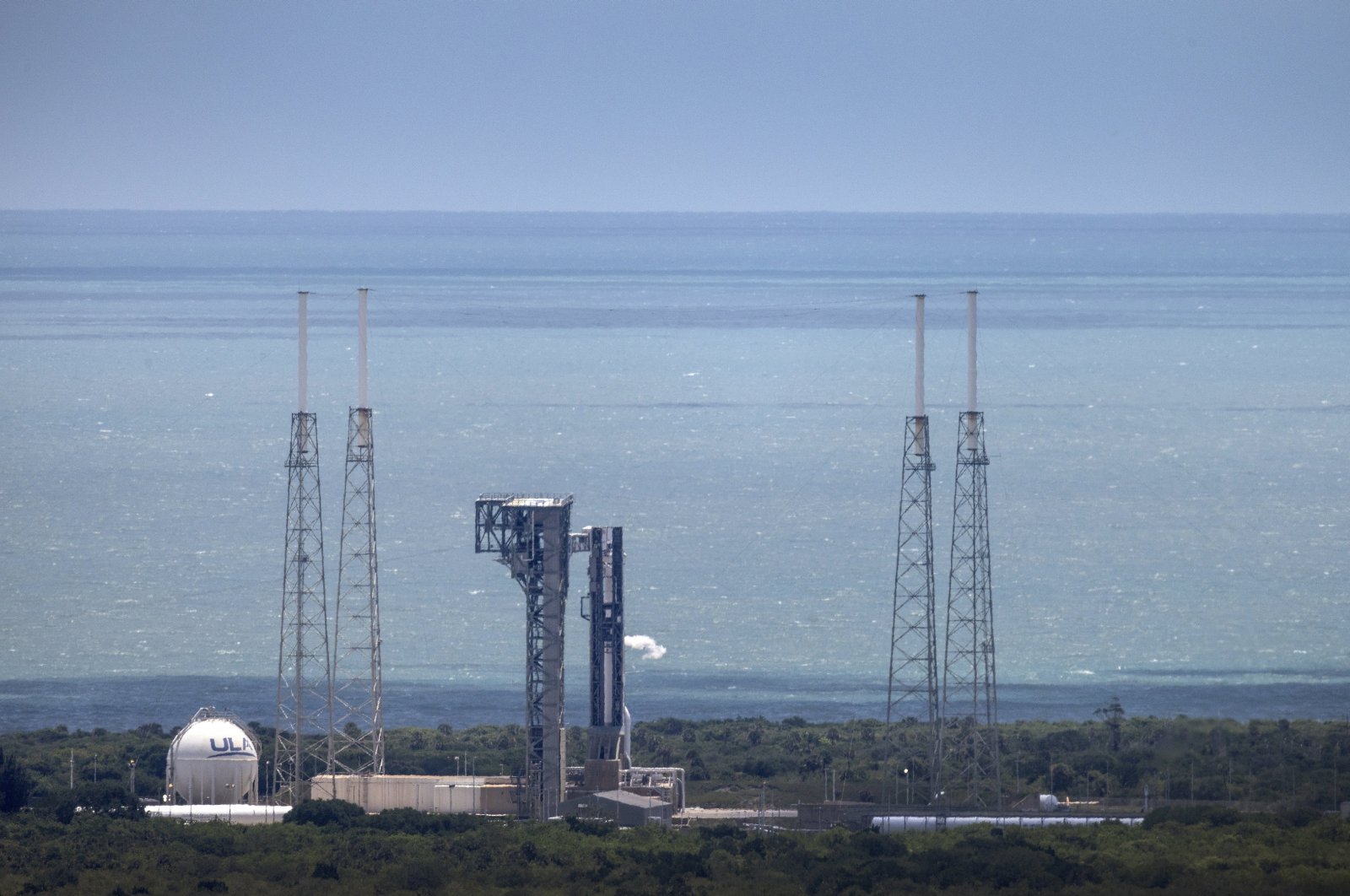
Last-minute computer trouble nixed Saturday’s Boeing's second attempt at launching its inaugural astronaut flight in the latest string of delays over the years and another setback for the company, which has been mired in safety troubles over recent months.
Two NASA astronauts were strapped in the company’s Starliner capsule when the countdown automatically was halted at 3 minutes and 50 seconds by the computer system that controls the final minutes before liftoff.
With only a split second to take off, there was no time to work the latest problem and the launch was called off.
Technicians raced to the pad to help astronauts Butch Wilmore and Suni Williams out of the capsule atop the fully fueled Atlas V rocket at Cape Canaveral Space Force Station. Within an hour of the launch abort, the hatch was reopened.
"The team can’t get to the computers to troubleshoot the problem until the rocket is drained of all its fuel," said Tory Bruno, CEO of the rocket maker, United Launch Alliance.
Bruno said one of the three redundant computers located near the rocket at the pad was sluggish. All three must work properly to proceed with a launch, he said.
Depending on what needs to be fixed, the next launch attempt could be as early as Wednesday. If it doesn't blast off this coming week, then it will be until mid-June when the rocket will be moved off the pad and the batteries replaced.
"This is the business that we're in,” Boeing's Mark Nappi said. "Everything's got to work perfectly.”
It was the second launch attempt in less than a month after the first try on May 6 was delayed for leak checks and rocket repairs.
NASA wants to certify Boeing as a second commercial operator to ferry crews to the International Space Station (ISS) – something Elon Musk's SpaceX has done for NASA for four years.
Both companies received multibillion-dollar contracts in 2014 to develop their crew capsules following the end of the Space Shuttle program that left the U.S. temporarily reliant on Russian rockets for rides.
With its 100-year history, Boeing was heavily favored, but its program fell badly behind amid embarrassing setbacks that mirrored the problems afflicting its commercial airline division.
Boeing should have launched its first crew around the same time as SpaceX, but its first test flight with no one on board in 2019 was plagued by severe software issues and never made it to the space station.
A redo in 2022 fared better, but parachute problems and flammability later caused more delays. A small helium leak in the capsule's propulsion system last month came on top of a rocket valve issue.
More valve trouble cropped up two hours before Saturday's planned liftoff, but the team used a backup circuit to get the ground-equipment valves working to top off the fuel for the rocket's upper stage.
Launch controllers were relieved to keep pushing ahead, but the computer system known as the ground launch sequencer ended the effort.
"Of course, this is emotionally disappointing,” NASA astronaut Mike Fincke, the backup pilot, said from neighboring Kennedy Space Center shortly after the countdown was halted.
But he said delays are part of spaceflight. "We're going to have a great launch in our future.”
Manual flying
When they do fly, Wilmore and Williams will be tasked with putting Starliner through the wringer, including taking manual control of the spacecraft.
Starliner is set to dock with the ISS for eight days as the crew carries out tests, including simulating whether the ship can be used as a safe haven in the event of problems on the orbital outpost.
After undocking, it will reenter the atmosphere and carry out a parachute and airbag-assisted landing in the western United States.
A successful mission would offer Boeing a much-needed reprieve from the intense safety concerns surrounding its passenger jets.
The aerospace giant was under intensive media and regulatory scrutiny over safety issues following initially an incident in January in the U.S. and several others involving different models of its aircraft that followed.
Shortly after, Boeing decided to overhaul its management amid mounting pressure from airlines, regulators and investors. However, it has recently submitted a safety roadmap to U.S. aviation officials that includes more inspectors and new performance benchmarks.
'Burden for the entire sector'
However, safety and quality problems exposed at Boeing following a door plug blowout on a 737 Max plane earlier this year risk shaking travelers' confidence in flying, according to a top executive at its rival Airbus.
Christian Scherer, CEO of Airbus' Commercial Aircraft business, recently told the German weekly magazine WirtschaftsWoche that the issues were "a burden for the entire industry."
"Boeing's problems could cause more people to question how safe flying actually is," Scherer was quoted as saying.
Boeing has been under mounting pressure over factory controls since Jan. 5, when a door plugin mid-flight tore off a jet of its best-selling 737 Max series in an incident blamed on missing bolts.
Scherer rejected claims that Airbus could raise its own jet prices because of Boeing's problems, adding that pricing was guided purely by demand outstripping supply and that it was difficult to predict how things would pan out in the future.
"I dare say that an ailing competitor can behave in a relatively unpredictable manner. If a company has dozens of planes in stock involuntarily, it could start a major sell-off."
